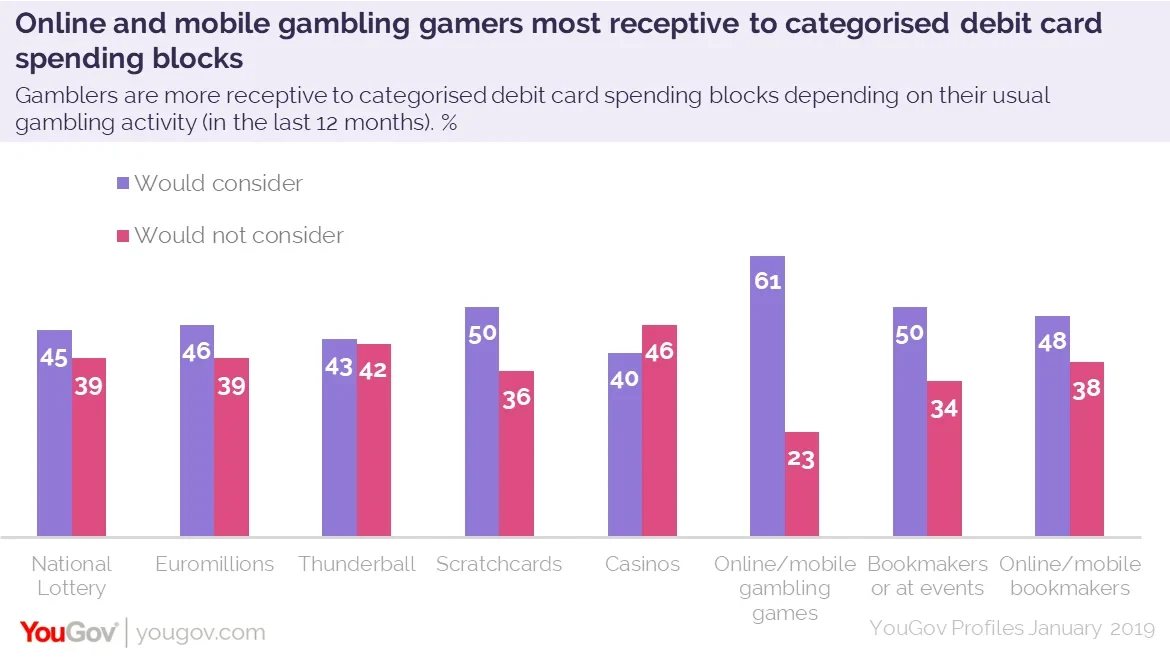Last month Barclays became the first high street bank to allow customers to ‘switch off’ certain types of spending on their debit cards - be that in pubs, at takeaways or on gambling websites - something which mobile-only bank Monzo had also offered for some time. The feature is intended to allow people to cut back on spending that they see as unhealthy and has been welcomed by the Money Advice Trust.
Alongside recent calls for gambling on credit cards to be banned entirely, it appears that the banking industry is increasingly going to have to take self-restriction and other measures seriously as a solution to help problem gamblers.
YouGov Profiles audience profiling data shows that more than two thirds (66%) of Britons have gambled in the last 12 months, and that 44% of the public would consider putting some type of block on their account - although it’s worth noting that this could be aimed at alcohol, fast food or gambling.
If we look closer and what the overlap between those two groups is, we find that 46% of gamblers would consider imposing a ban on some aspect of their own spending, perhaps suggesting that gamblers would be open to an aid to self-control.
Openness to spending restrictions depends on the location of gambling
We’ve found that how receptive gamblers would be to add category blocks on their cards varies depending on the things they bet on, and how they place bets.

For instance, just 40% of people playing games at casinos would consider putting a card block in place, but this rises to almost two thirds (61%) of those who play games such as roulette online.
Meanwhile, punters who regularly visit bookmakers in person or place bets at live sporting events gave essentially identical results, at 50% and 48% respectively. However, two in five (38%) of those who bet via online bookmakers would never consider using a categorical block.
Those who regularly purchase lottery scratch cards are marginally more likely to consider a block (50%) than those who buy Euromillions tickets (46%) and National Lottery tickets (45%).
On the whole, categorised spending blocks could be a great way for those who like to gamble to bet safely, and reduce the risk of taking it too far. Previous YouGov research shows that 12% of gamblers believe they ‘should probably bet less than they currently do’. For this group, a block could be a helpful aid to self-control that helps avoid problematic gaming.
But not all gamblers believe that they need external help to restrict their spending. The large majority (70%) of them said in our same survey that they don’t feel that they ever gamble too much - and would therefore be unlikely to self-impose a ban on their spending because they see it as already within their control. Unfortunately, this group is likely to include those who have become addicted and are in denial. So while self-restriction measures will undoubtedly help some to gamble responsibly, they are far from a silver bullet.
Data gathered using YouGov Profiles.
This article previously appeared on EGR Online.
Image: Getty







